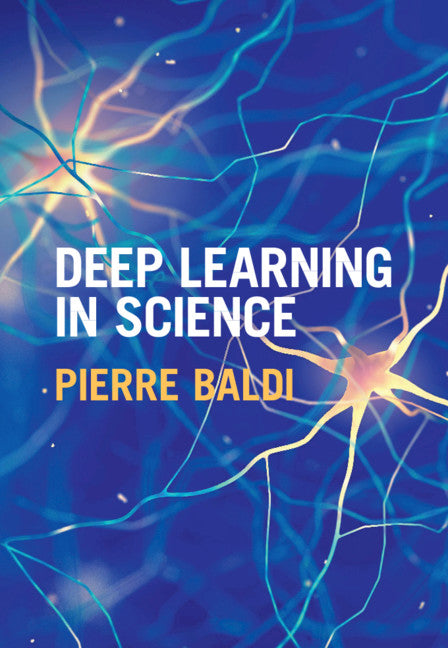Freshly Printed - allow 4 days lead
Couldn't load pickup availability
Deep Learning in Science
Rigorous treatment of the theory of deep learning from first principles, with applications to beautiful problems in the natural sciences.
Pierre Baldi (Author)
9781108845359, Cambridge University Press
Hardback, published 1 July 2021
450 pages
25.1 x 17.2 x 2.2 cm, 0.92 kg
'This comprehensive work from a leader in the field undoubtedly belongs in the library of every institution that teaches courses touching on deep learning. Highly recommended.' R. Bharath, Choice Connect
This is the first rigorous, self-contained treatment of the theory of deep learning. Starting with the foundations of the theory and building it up, this is essential reading for any scientists, instructors, and students interested in artificial intelligence and deep learning. It provides guidance on how to think about scientific questions, and leads readers through the history of the field and its fundamental connections to neuroscience. The author discusses many applications to beautiful problems in the natural sciences, in physics, chemistry, and biomedicine. Examples include the search for exotic particles and dark matter in experimental physics, the prediction of molecular properties and reaction outcomes in chemistry, and the prediction of protein structures and the diagnostic analysis of biomedical images in the natural sciences. The text is accompanied by a full set of exercises at different difficulty levels and encourages out-of-the-box thinking.
1. Introduction
2. Basic Concepts
3. Shallow Networks and Shallow Learning
4. Two-Layer Networks and Universal Approximation
5. Autoencoders
6. Deep Networks and Backpropagation
7. The Local Learning Principle
8. The Deep Learning Channel
9. Recurrent Networks
10. Recursive Networks
11. Applications in Physics
12. Applications in Chemistry
13. Applications in Biology and Medicine
14. Conclusion
Appendix A. Reinforcement Learning and Deep Reinforcement Learning
Appendix B. Hints and Remarks for Selected Exercises
References
Index.
Subject Areas: Machine learning [UYQM], Mathematical theory of computation [UYA], Data capture & analysis [UNC], Geographical information systems [GIS & remote sensing RGW], Science: general issues [PD], Communication studies [GTC], Data analysis: general [GPH]


